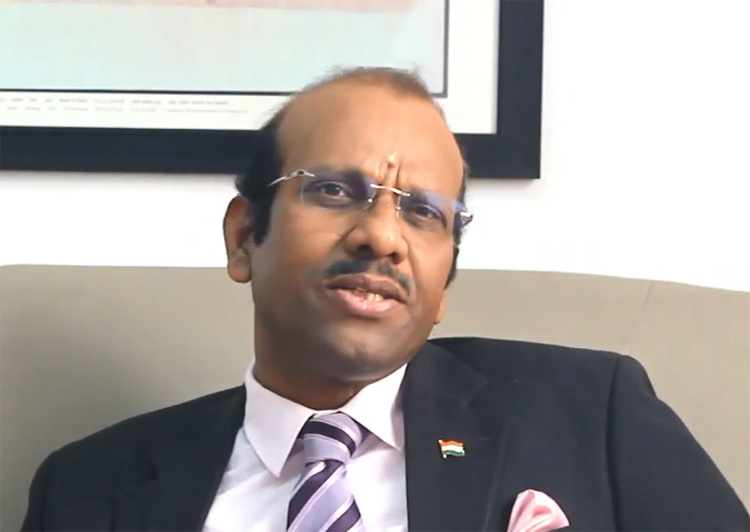Students should know which side their roti is buttered and avoid questioning the government, an international university established by the Saarc countries in New Delhi seemed to suggest this week.
A group of students from the South Asian University have told The Telegraph that the institution’s acting president, A.V.S. Ramesh Chandra, tried to dissuade them from holding a discussion on the new citizenship regime, saying it would be unfair because “India gives you rotis”.
New Delhi bears not just the entire capital expenditure for the international university, started by the eight Saarc nations in 2010, but also half its operational costs.
According to the students, Chandra warned that the university would be closed if the discussion was held, and the campus authorities swiftly tightened the regulations relating to student events.
However, the students went ahead with the event on Friday in an uncovered area although the lone guest — an academic from outside the university — stayed away after being told that permission had been denied for the programme.
Till late night, the university had not acted against the organisers or participants.
An email this newspaper had sent to Chandra and the university’s public relations officer, Aheibam Prahlad, on Friday afternoon had evoked no reply till night although the PRO acknowledged its receipt.
An informal students’ forum, the SAU Research Association, had planned a discussion on the “Dark side of democracy: Explaining CAA NRC/NPR” on the canteen premises on Friday but was refused permission to use the venue early this week.
When association representatives met Chandra to sort the matter out, he made the “roti” remark, several students told this newspaper.
They said Chandra told them the Indian government had been generous in providing funding for the university.
SAU, which has about 600 students from across the Saarc countries, functions from its Akbar Bhavan campus in Chanakyapuri, offering master’s and research programmes. The other seven nations together bear just half the operational cost.
On Wednesday, Chandra allegedly called a meeting of all the students and warned that the university would be shut down if the students went ahead with the event.
On Thursday, the university issued new rules requiring the students to seek permission before holding any event, even discussions on socio-political issues. Earlier the students had to seek permission only for the venue, and only if it was a closed space instead of a garden or lawn.
Under the new rules, requests relating to any event must be submitted to the dean of students by the 15th of the previous month. The faculty advisory committee will review the proposal and notify the decision within seven days. The university need not cite any reason for rejecting a request.
Nearly 150 students have written a protest letter to Chandra against the latest rules.
Several students told this newspaper that the rule empowering the university to reject the students’ requests without citing any reason was “wrong”.
They said this ran counter to the objectives with which the university was founded, one of them being “to foster in the students sound civic sense and to train them to become useful citizens of democratic societies”.
A foreign student said the university had never before prevented any discussion on any issue.
“Students discussed the Nepal blockade in 2015, the Rohingya refugee crisis in Bangladesh and India…. No permission was needed,” a student said.
Independent academics described the new rules as “un-academic”.
“A university is supposed to encourage debate, questioning and dissent. Any move to curtail the space for critical analysis would defeat the idea of the university,” a Delhi University teacher said.

